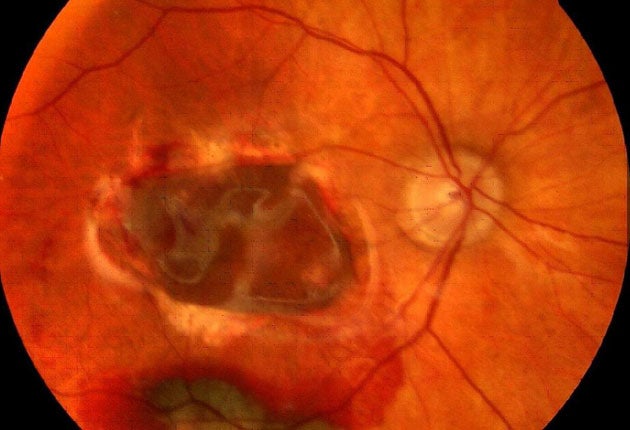Stem cells could help blind patients to see within six weeks

Blind patients suffering from a type of eye disease that strikes in childhood will become the second group of people in the world to receive stem cells derived from spare IVF embryos left over from fertility treatment.
The US Food and Drug Administration (FDA) has given the go-ahead for the controversial transplant of embryonic stem cells into the eyes of patients with Stargardt's macular degeneration, where the light-sensitive retina cells at the back of eye are destroyed.
The announcement follows the first injection of embryonic stem cells into a patient in the US who is partially paralysed as a result of a spinal cord injury. Last October, a US biotechnology company, Geron, announced the start of the first clinical trial of embryonic stem cells with the hope of repairing damaged nerves.
Another US biotechnology firm, Advanced Cell Technology, has now been given approval for a second clinical trial involving the injection of thousands of embryonic stem cells into the eyes of a dozen adult patients with a juvenile form of macular degeneration.
Robert Lanza, the company's chief scientific officer, said that the first patient could receive the stem cell transplants early in the new year and although the trial is designed primarily to assess safety, the first signs of visual improvement may be apparent within weeks.
"Talking to the clinicians, we could see something in six weeks, that's when we think we may see some improvements. It really depends on individual patients but that's a reasonable time frame when something may start to happen," Dr Lanza said.
Embryonic stem cells, which are derived from IVF embryos just a few days old, have the ability to develop into any of the dozens of specialised cells of the body. Researchers believe they could revolutionise medicine because of their ability to repair damaged tissues and organs in situ without the need for whole-organ transplants.
However, "pro-life" groups such as the Roman Catholic Church are bitterly opposed to the practice which they say involves the deliberate destruction of potential human beings – even if they are only 3-day old embryos.
Last week, a Glasgow man in his 60s with stroke damage to his brain became the world's first person to receive injections of stem cells derived from an aborted foetus as part of a clinical trial to test the safety of foetal stem cells, which are believed to be less powerful than embryonic stem cells in terms of regenerative ability.
Dr Lanza said that the clinical trial on patients with Stargardt's disease will involve several clinics across America, including the Casey Eye Institute in Portland, Oregon, the University of Massachusetts in Worcester and the New Jersey Medical School, Newark.
The first three patients will receive injections of 50,000 embryonic stem cells, the second set will receive 100,000 cells and the highest dose will be 200,000 cells. Animal studies have shown dramatic improvements in eye sight following the lowest dose, Dr Lanza said. "We've tested these cells in animal models of eye disease. In rats, we've seen 100 per cent improvement in visual performance over untreated animals without any adverse effects," he said.
Subscribe to Independent Premium to bookmark this article
Want to bookmark your favourite articles and stories to read or reference later? Start your Independent Premium subscription today.

Join our commenting forum
Join thought-provoking conversations, follow other Independent readers and see their replies